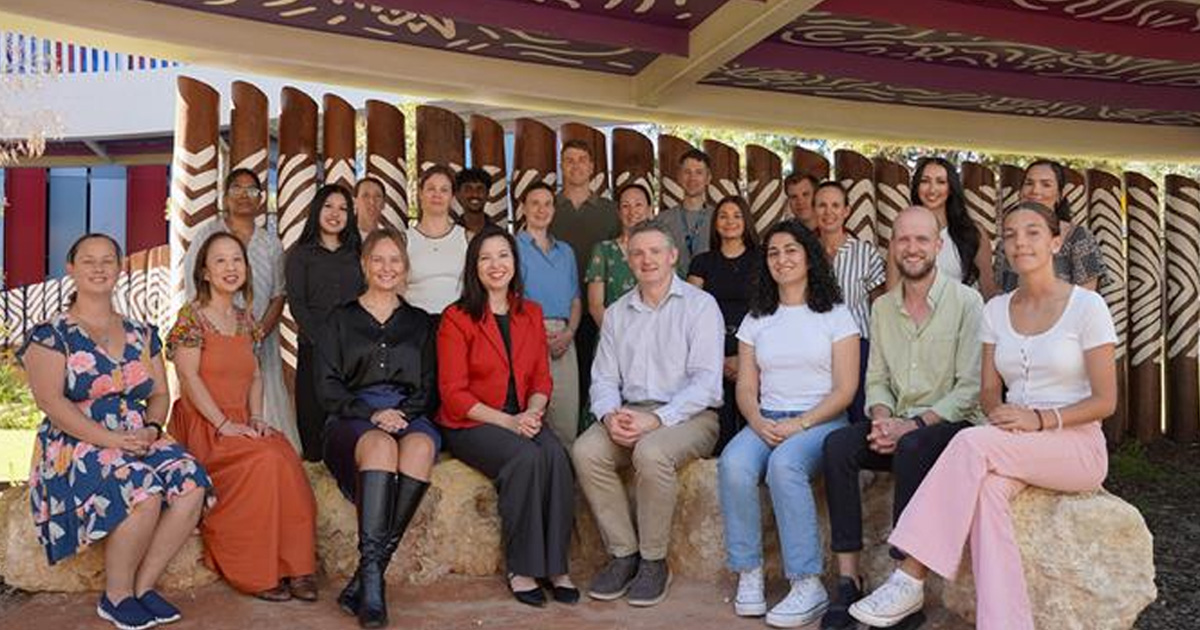Search
Research
Accumulation of CD103+ CD8+ T cells in a cutaneous melanoma micrometastasisResults support the emerging concept that CD103+ CD8+ tissue‐resident memory T cells are key mediators of cancer surveillance
Research
Contemporary survival endpoints: An international diffuse intrinsic pontine glioma registry studyThis study defines PFS and OS, and is the first describe post-progression survival in a large cohort of children with DIPG.
Research
A Phase I Study of the CDK4/6 Inhibitor Ribociclib (LEE011) in Pediatric Patients with Malignant Rhabdoid Tumors, Neuroblastoma, and Other Solid TumorsIn this. i study the MTD and RP2D, safety, PK, and preliminary activity of single-agent ribociclib were investigated in patients with neuroblastoma.
Research
High expression of connective tissue growth factor accelerates dissemination of leukaemiaFunctional role of CTGF in altering disease progression in a lymphoid malignancy

News & Events
Rapid diagnosis for childhood brain cancer in WAThe Kids Research Institute Australia's Brain Tumour Research team will develop and implement cutting-edge technologies to revolutionise the speed of brain cancer diagnosis for WA children, thanks to more than $200,000 from Telethon.
Research
Radiographic and visual response to the type II RAF inhibitor tovorafenib in children with relapsed/refractory optic pathway glioma in the FIREFLY-1 trialDue to their anatomical locations, optic pathway gliomas (OPGs) can rarely be cured by resection. Given the importance of preserving visual function, we analyzed radiological and visual acuity (VA) outcomes for the type II RAF inhibitor tovorafenib in the OPG subgroup of the phase 2 FIREFLY-1 trial.
Research
Comments and Controversies in Oncology: The Tribulations of Trials Developing ONC201Our international team highlights issues with efficacy reports in several studies on DMG with the new drug ONC201.
Research
IDH mutant high-grade gliomasGliomas are the most common type of malignant primary central nervous system (CNS) tumors, resulting in significant morbidity and mortality in children and adolescent and young adult (AYA) patients. The discovery of mutations in isocitrate dehydrogenase (IDH) genes has dramatically changed the classification and understanding of gliomas. IDH mutant gliomas have distinct clinical, pathological, and molecular features including a favorable prognosis and response to therapy compared to their wildtype counterparts.
Research
Long-Term Outcome of Young Infants With Suspected Neuroblastoma following Observation as Primary Therapy: A Report From the Children's Oncology GroupSeveral studies have established that patients with localized perinatal neuroblastoma can be safely observed; however, long-term outcomes have not been previously reported. We evaluated long-term outcomes of infants with suspected perinatal neuroblastoma enrolled on the Children's Oncology Group ANBL00P2, which included an expectant observation approach.
Research
A New Era for PPARγ: Covalent Ligands and Therapeutic ApplicationsPeroxisome proliferator-activated receptor γ (PPARγ) is a prominent ligand-inducible transcription factor involved in adipocyte differentiation, glucose homeostasis, insulin sensitivity, inflammation, and cell proliferation, making it a therapeutic target for diabetes, metabolic syndrome, autoimmune diseases, and cancer.
